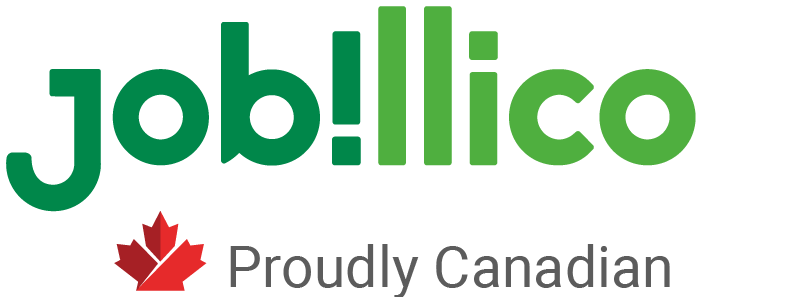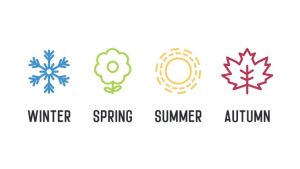Seasonal Job Hunting Tips: How to Land the Perfect Summer Job
 Publié le 5 July 2024
Publié le 5 July 2024
Learn how to land the perfect summer job with simple and effective seasonal job hunting tips.
It’s getting closer to summer, with sunny days and warm nights. Are you thinking about getting a seasonal job? It can be a great opportunity if you’re a student or looking for extra income. There are so many different job opportunities in the seasonal market. However, it might not be that easy to land a perfect one unless you know how to land the perfect summer job. Keep reading and learn some useful seasonal job hunting tips! The Biggest Benefits of Summer Job
We want to outline a few reasons why a summer job is such a great idea before we start with the advice. It’s not just about money. This initiative can give you some lasting benefits as well. Keep reading!
Valuable Work Experience
First of all, it’s an excellent possibility to gain practical experience. You’ll develop essential skills that might help you in your future career. These hands-on experiences can help you stand out to hiring managers and make you more competitive in the market.
Skill Development
You’ll need different skill sets for different job roles. Summer jobs are a great opportunity to develop both hard and soft skills. You’ll learn to
- Manage time effectively;
- Communicate with diverse groups of people;
- Handle customer service situations and much more.
Networking Opportunities
Also, this experience can give you so many networking possibilities. You’ll meet colleagues and possibly clients who can offer guidance and references. With these professional connections, it’ll be much easier to develop your career in the future.
Financial Independence
You’ll get a feeling of financial independence and responsibility by earning your own money. A summer job can help you reach your financial goals. Plus, for young people and those without much prior work experience, it might teach you important money management skills.
Explore Career Interests
Summer jobs are a great way to try different professional paths without a long-term commitment. You can test out various industries and roles to see what you enjoy. It will help you make smarter decisions about your professional future.
Exploring career paths through internships or temporary assignments can give you the insights needed before settling on full-time jobs in fields that genuinely interest you. Additionally, these experiences can serve as a valuable precursor to full-time jobs, allowing you to develop a network and gain relevant skills in your chosen industry.
Development of a Strong Work Ethic
Summer work can help you instill a stronger work ethic. You’ll learn the importance of
- Punctuality;
- Dedication;
- Professionalism, etc.
These transferable skills are highly valued in any company and will help you stand out to hiring managers.
Top 7 Tips for Seasonal Job Hunting
It’s clear that a seasonal job can be extremely beneficial for your professional future. It can become your ticket to success in the future. However, finding a position is not always the easiest task. You need to approach it thoughtfully. We want to give you some seasonal job hunting tips on how to land the perfect summer job.
Start Early
This advice might seem quite predictable, but it can really give you a head start. So, why start early?
Seasonal positions often attract numerous applicants. You can increase your chances of standing out before the market becomes saturated with candidates. Plus, employers often post openings in advance. They may start searching in winter or spring. You will get more options to choose from if you start faster. We also want to mention that early applicants have more time to prepare their resumes and interview strategies. This allows you to present yourself as a well-prepared and organized candidate.
Here are a few steps you should take in your early search:
- Research industry timelines;
- Set up alerts for seasonal positions;
- Reach out to previous employers or colleagues to learn about upcoming opportunities;
- Visit potential employers in person;
- Regularly check job boards;
- Attend different job fairs and events.
Customize Your Resume
We recommend tailoring your resume specifically to the job and industry. A customized resume highlights your most relevant skills and experiences. It can boost your chances of catching an employer’s attention for the right reasons. Below, we gathered some points you should focus on.
- Analyze job descriptions and identify the most important keywords and phrases;
- Learn about the company’s culture and typical duties;
- Highlight past positions that are similar to the work you’re applying for;
- Use strong action verbs;
- Try to use numbers to quantify your achievements;
- Include examples of your work in a team;
- Create a skills section that lists the relevant competencies;
- Include any relevant education or certifications you have.
Also, you need to pay more attention to the cover letter. It should complement your resume, so personalize it for each application. Always proofread it a few times to make sure it’s correct and persuasive. You can even ask a career advisor to review it beforehand to identify any common cover letter errors.
Popular Job Boards
General job boards or LinkedIn are excellent starting points. You can use their advanced search filters to narrow down the postings. As we’ve noted before, you can set up alerts to receive notifications about new options.
When considering different tools to manage your credentials efficiently, a self hosted password manager stands out for its enhanced security and customization options. Unlike cloud-based solutions, it allows you to keep your data on your servers, providing greater control over your information. This can be especially beneficial for teams and businesses looking to maintain strict data privacy standards.
Industry-Specific Sites
Certain websites specialize in hosting job opportunities in particular fields. For example, CoolWorks focuses on seasonal jobs in outdoor recreation and resorts. Sites like Hcareers specialize in hospitality and tourism roles. So, you can find niche opportunities that match your interests and talents.
Company Websites
Many companies post openings directly on their sites. So, try to systematically check them if you have specific organizations in mind. This can sometimes give you an edge in the application process, as these listings might not appear on general boards.
Recruitment Agencies
Staffing agencies can also be a great resource for you. They can match you with positions that fit your talents and availability. Sometimes they even offer temporary-to-permanent possibilities.
Social Media
Last but definitely not least, you can use social media platforms. For instance, LinkedIn can be a powerful tool in your job hunt. You can
- Follow companies you’re interested in;
- Join niche-specific groups;
- Participate in discussions, etc.
Put Extra Effort in Interview Preparation
Seasonal job interviews may be more brief than those for permanent positions. Many people think that there’s no need to prepare. However, it’s extremely important to make a strong impression. Here are a few tips to help you get ready:
- Get familiar with recent news about the company;
- Be ready to discuss examples of how you can be suitable for the role;
- Research common interview questions and practice your responses;
- Prepare a few questions to ask the interviewer;
- Practice your body language;
- Choose professional clothing that fits the company’s culture;
- Bring multiple copies of any required documents;
- Make sure to arrive a bit earlier before your scheduled time;
- Try to send a thank-you email to the interviewer within 24 hours.
Highlight Soft Skills
We strongly recommend focusing on showcasing your soft skills. Employers often pay more attention to personal traits, as they are essential for temporary roles. You need to provide examples that illustrate how you’ve demonstrated these attributes in previous roles. Which points are worth mentioning?
- Strong communication;
- Capability to collaborate and share responsibilities;
- Ability to learn quickly and adjust to new situations;
- Enthusiasm and positive mindset;
- Good time management;
- Proficiency in handling problems and working under pressure;
- Customer service skills (patience, compassion, conflict resolution, etc.);
- Highlight your punctuality and work commitment.
Consider Volunteering or Internships
While volunteering options may not seem as attractive as paid roles. However, they can give you some priceless experience. It can be influential when you apply for a job in the future. You will gain more insights about certain fields and learn from professionals with experience. ou will be able to meet new people who might offer you mentorship or recommendations.
Another advantage of these initiatives is the possibility of filling gaps in your resume. It shows potential employers that you are proactive and dedicated to improving your own professional skillset. Plus, volunteering allows you to give back to your community. It can really give you a feeling of fulfillment and purpose.
Here are a few ways to find these possibilities:
- Use online platforms (VolunteerMatch, Idealist, etc.)
- Contact your professors or professional contacts;
- Check offers of local nonprofits or community centers;
- Utilize your university’s career services;
- Follow different volunteering organizations on social media.
Follow Up
We want to emphasize the importance of following up once again. The competition for seasonal positions is pretty fierce. A thoughtful follow-up message can persuade the employer that you’re actually enthusiastic about the possibility of working with them.
Generally, you need to wait about one week after submitting your application before reaching out. You can either do it through an email or phone call. We recommend email messages, as they are less intrusive. Remember that it should be polite and professional. Also, you should give the person some time after you contact them. Avoid flooding them with multiple messages in a short period. Try not to get discouraged and keep your options open.
Conclusion
A summer job is a perfect way to gain new knowledge and earn some extra money. It gives you the possibility to expand your professional network and learn more about different careers. However, the search process is not always simple, as this market can be pretty competitive. So, you need to approach it thoughtfully. We strongly recommend monitoring all the openings and being active. Pay attention to your resume and cover letter. Try out different options and find one that suits you the most. Follow our seasonal job hunting tips and you’ll know how to land the perfect summer job. Good luck finding your perfect opportunity!







